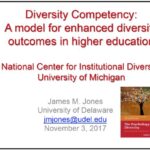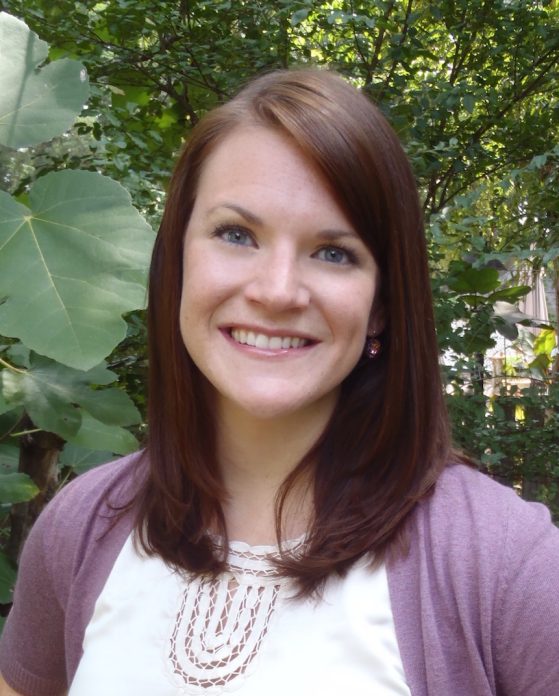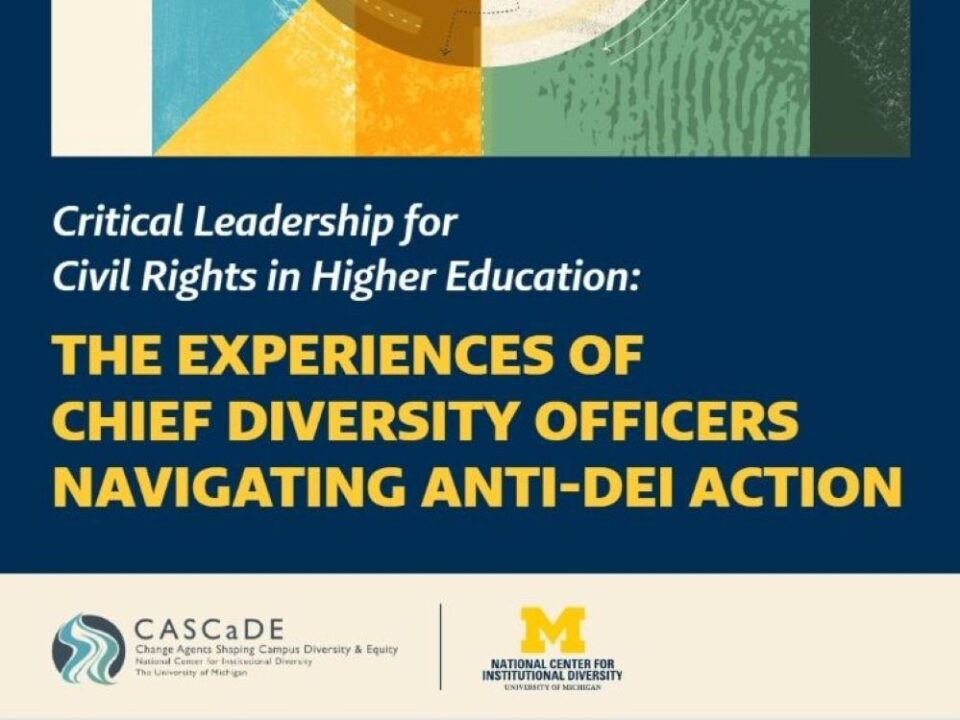- About
- News
- Events
- Initiatives
- Anti-Racism Collaborative
- Change Agents Shaping Campus Diversity and Equity (CASCaDE)
- Diversity Scholars Network
- Inclusive History Project
- James S. Jackson Distinguished Career Award for Diversity Scholarship
- LSA Collegiate Fellowship Program
- University Diversity & Social Transformation Professorship
- Publications & Resources
- About
- News
- Events
- Initiatives
- Anti-Racism Collaborative
- Change Agents Shaping Campus Diversity and Equity (CASCaDE)
- Diversity Scholars Network
- Inclusive History Project
- James S. Jackson Distinguished Career Award for Diversity Scholarship
- LSA Collegiate Fellowship Program
- University Diversity & Social Transformation Professorship
- Publications & Resources

Diversity Competency and Storytelling: Two Approaches to Examine Student Diversity Experiences
October 20, 2017Welcome New Members of the Diversity Scholars Network!
December 18, 2017Scholar Story: Stephanie Rountree
"Where in the feudal structure your birthplace determined already the quality of your life and your ability for social transcendence, in many ways, we have the exact same form of biological determinism in our nation today."
by Charlotte Ezzo
When you think of travel bans, mass incarceration, and non-inclusive marriage laws, do you also think of American slavery? Stephanie Rountree’s research explores bodily regulations such as these and their interconnection, and asserts that to think of each past and future issue as new is to miss an opportunity.

Dr. Rountree sat down with us this month to talk about her rubric of anteliberalism and how it triangulates corporeality, capitalism, and citizenship.
This interview has been edited for clarity and length.
Q: What is your research focus?
A: My research looks at narratives as an intersection of identity, dichotomy, and US nationalism. I read for the stories we tell ourselves. In reading those stories I look for patterns in the way that people express how this nation supports them, protects them, neglects them, oppresses them, or any other sort of management. Right now I'm working on a project on a musical that was on Broadway last spring. I'm looking not necessarily for literature per se so much as narrative. I argue that people tell stories about their experience, and when we listen to and believe these stories, then what we can find are commonalities that organize the way our liberal democracy manages human bodies and life across different.
Q: Here in Michigan, the Flint water crisis is pretty relevant to us. Can you explain to us how the Flint water crisis fits into your rubric of anteliberalism?
A: I think that it hearkens to how resources that are needed for life are directed towards humans that are determined valuable or not valuable. That is absolutely a logic that we see developed in racialized slavery, that the bare minimum needed to survive to create the foundational labor pool in a South built on enslavement absolutely still informs the logic of who gets clean water and who doesn't, and which communities are worth investing in, and which aren't. Because what's valued in that is not the human life or the quality of health, or the responsibility of a government to ensure people access to life giving resources, but instead that life is subordinated to capital, to cost savings initiatives in the case of Flint, Michigan. That's not new.
I argue that the notion of regulating the human at the human level is something that was established at the birth of American liberal democracy and racialized slavery. That's not something that I invented. What I push to the next step is not only to isolate the capital and the economy, but instead to privilege the human experience. When you measure government health not in the growth of an economy, but instead you measure it on the level of the human experience and human health, then what we see is that the dawn of capitalism in the liberal democracy with the United States actually didn't affect a tremendous change in human experience and human suffering, it's antecedent in feudalism. Where in the feudal structure your birthplace determined already the quality of your life and your ability for social transcendence, in many ways, we have the exact same form of biological determinism in our nation today. That how you're born and where you're born and by whom you are born determine which resources you have access to. That is a replication and a much fancier, much more occluded way of what was happening in feudalism already.
Anteliberalism works in two ways. It is against the notion that neoliberalism is new, and it hearkens how human experience is still biologically determined in a way that your birth in a feudalist structure determines your future. It was working before both of those flash points in economic history.
I guess my battle cry is that it's just not new. This isn't new. When we call it new, we miss an opportunity.
Q: What prompted you to examine this line of research?
A: I've always been very interested in identity and embodiment, but in the last semester of my PhD coursework, there was a moment when I was reading from W.E.B. Du Bois's Black Reconstruction in America at the same time that I was reading Lisa Marie Cacho's Social Death. The common thread between those two studies just struck me. Of course as I mentioned before, Du Bois's Black Reconstruction was the first piece of scholarship that you get that articulates the reliance of American capitalism on enslavement. At the same time, Lisa Marie Cacho's Social Death is looking at the ways that embodiment and ideas of citizenship are all bound up in enfranchisement.
I just felt like this idea that capitalist roots in enslavement and also the way that citizenship and bodies marked by their corporeality, there's just something happening there. Reading them side-by-side completely changed the direction of what I thought I wanted to do.
Q: What are the key takeaways of your work?
A: My ultimate goal in this very diverse archive of history and literature is to demonstrate what a wider impact on US sociopolitical history African enslavement has been, far more than has been conventionally accepted. It of course explains current modes of racial oppression, exploitation, and violence in the United States, but it also helps us to understand how that works across markers of disability, gender, sexuality, and class. I hope the most important takeaway is that if a white LGBT woman in the 21st century experiences systemic oppression as a result of public policy, that is deeply connected to the violence and the horror and the logic of subordinating life back in racialized enslavement. That connectivity across time and history is the way of taking racialized enslavement not as an exception to liberal democracy, but instead as the rule. We can see it in public policies as they impact people across different identities. That is the most important thing I hope we see, that we are all very deeply tied to this moment in American history.
Are you interested in Dr. Rountree's work? Visit her profile here.




